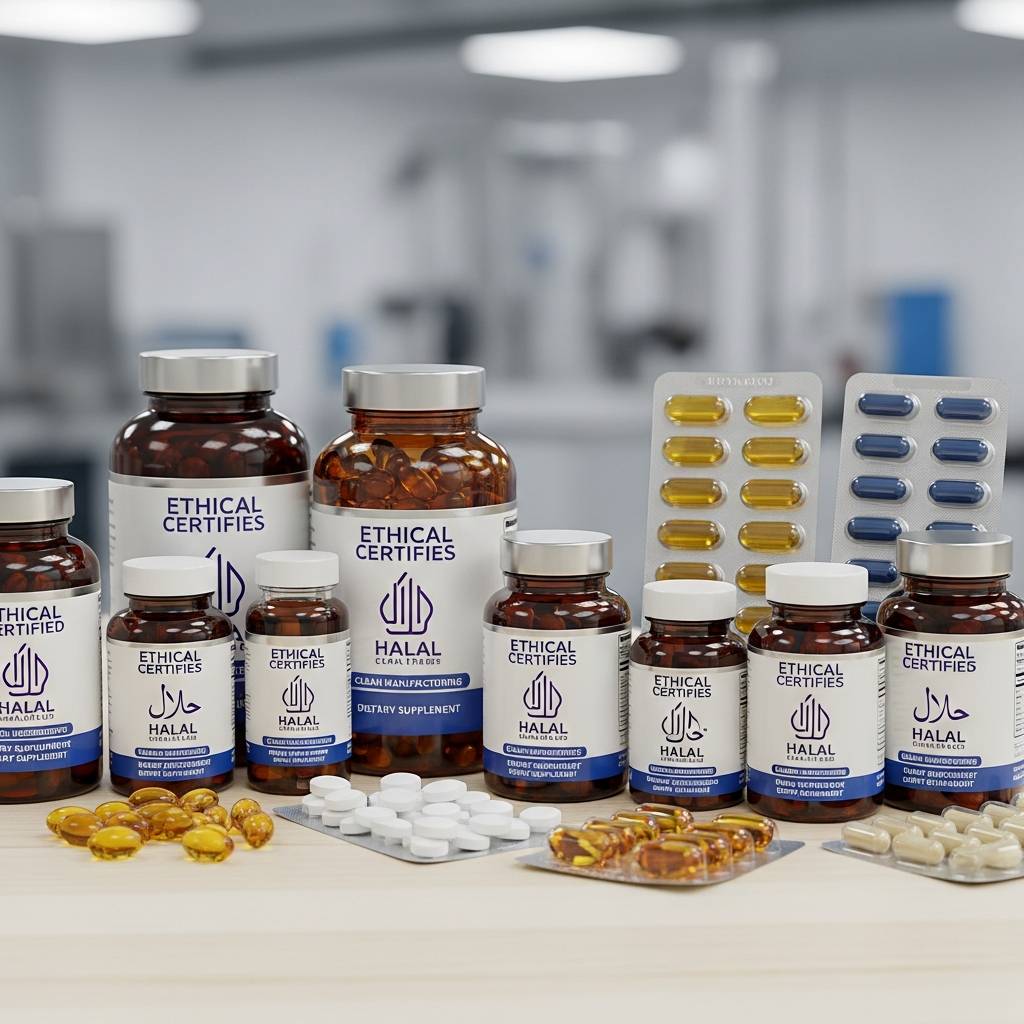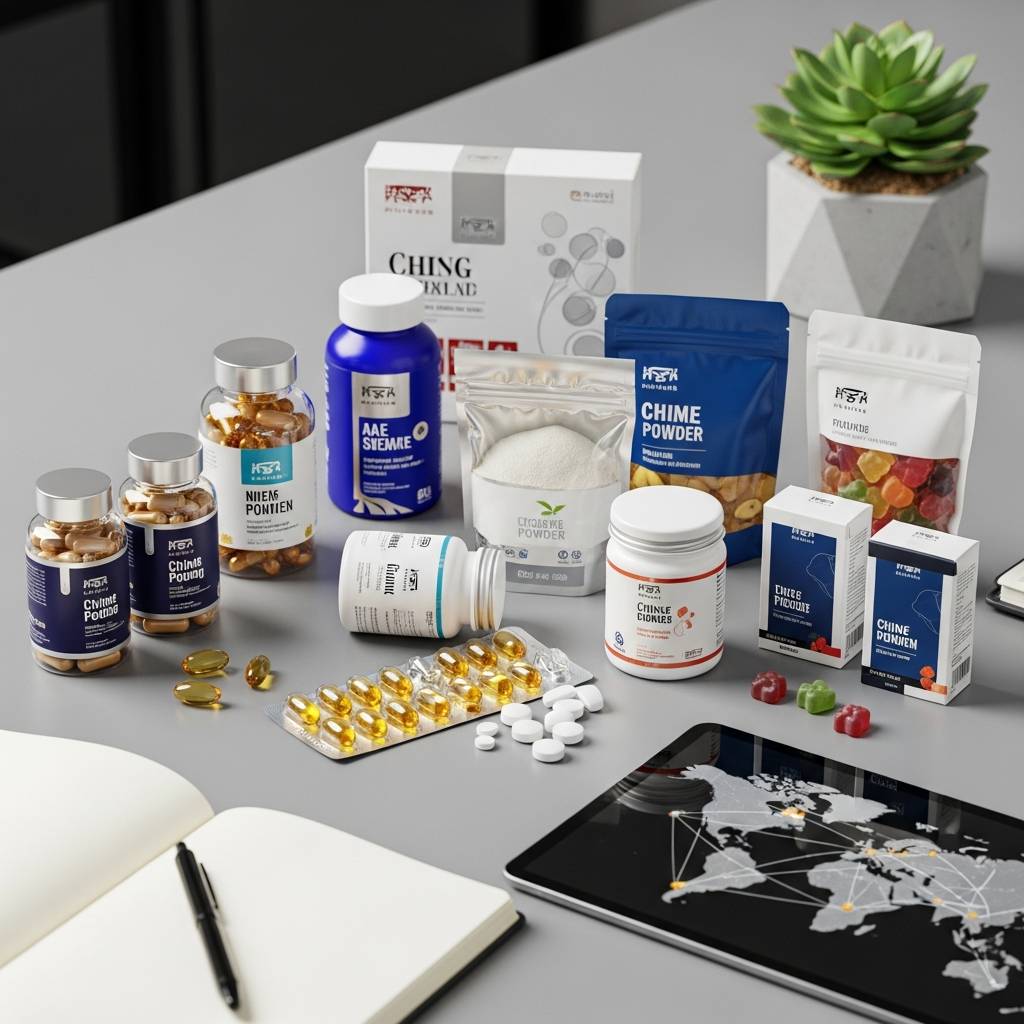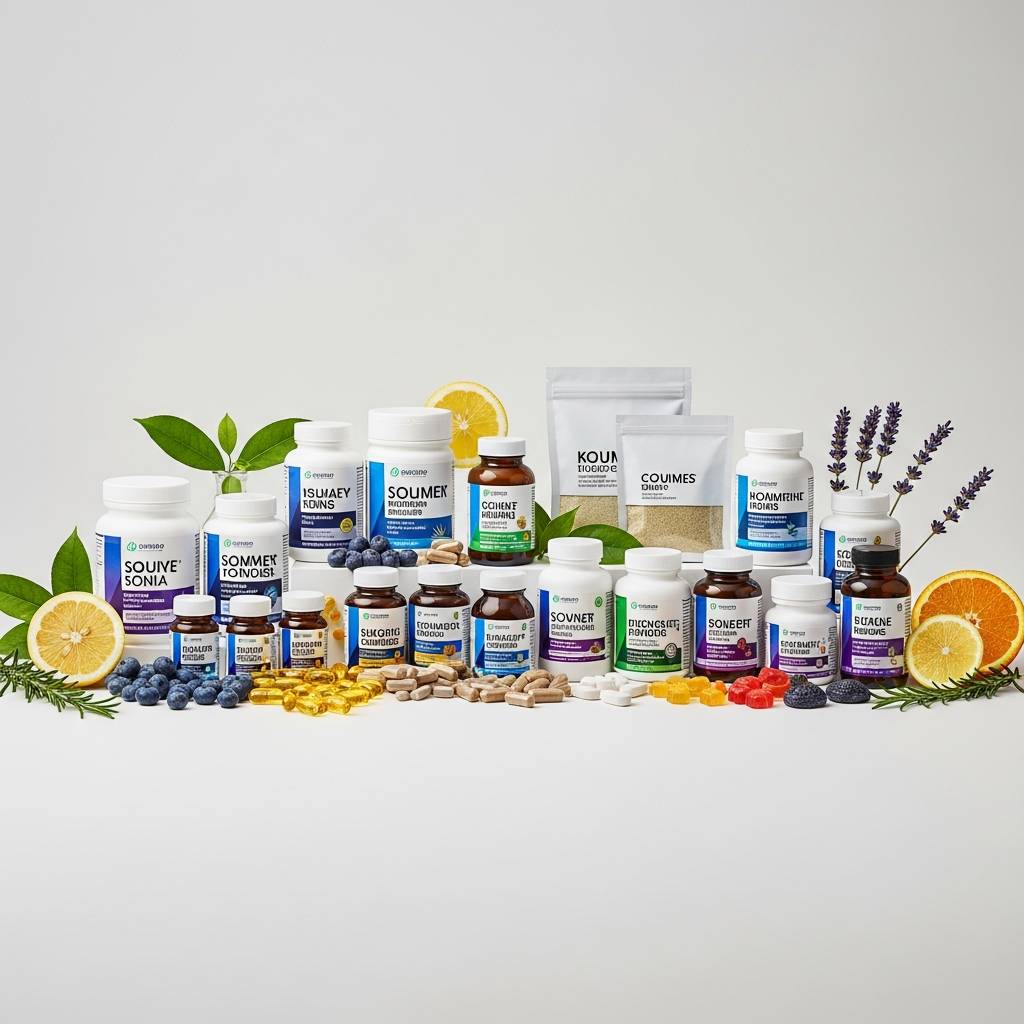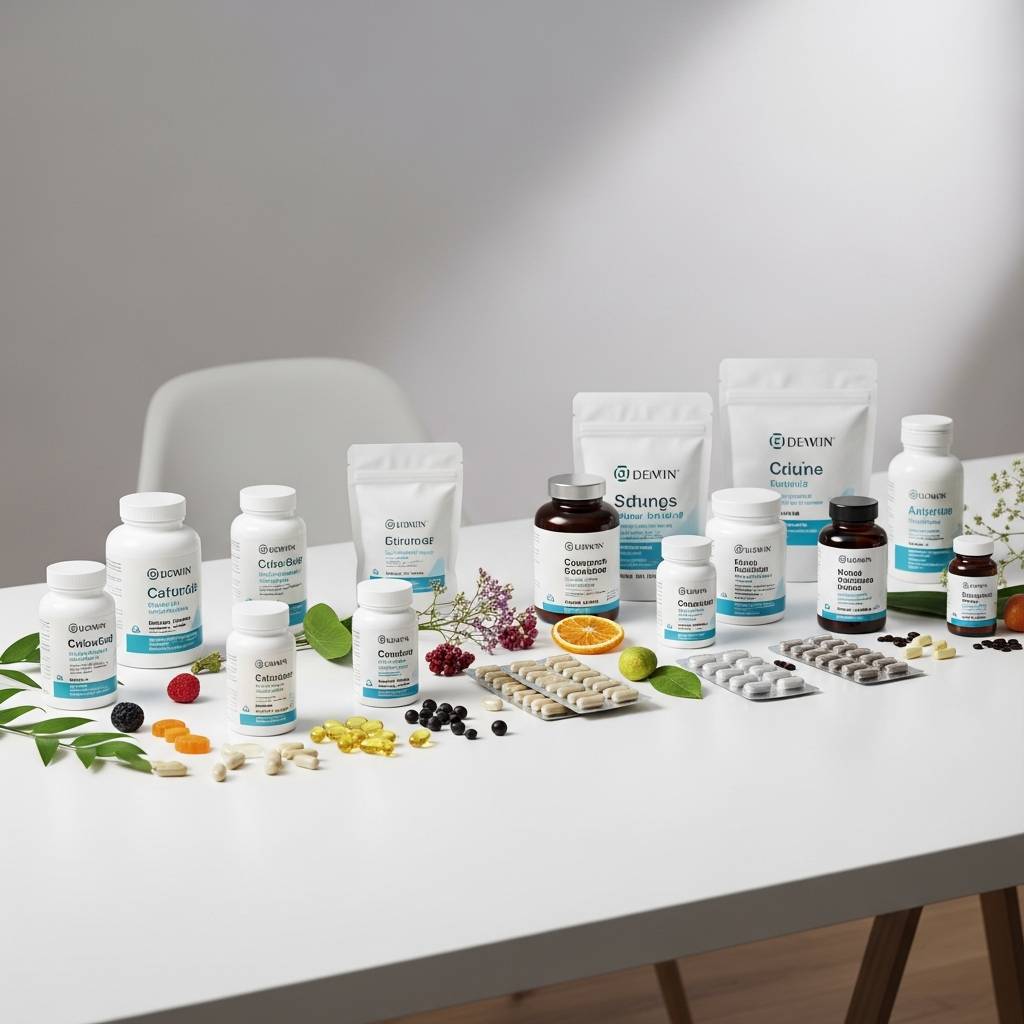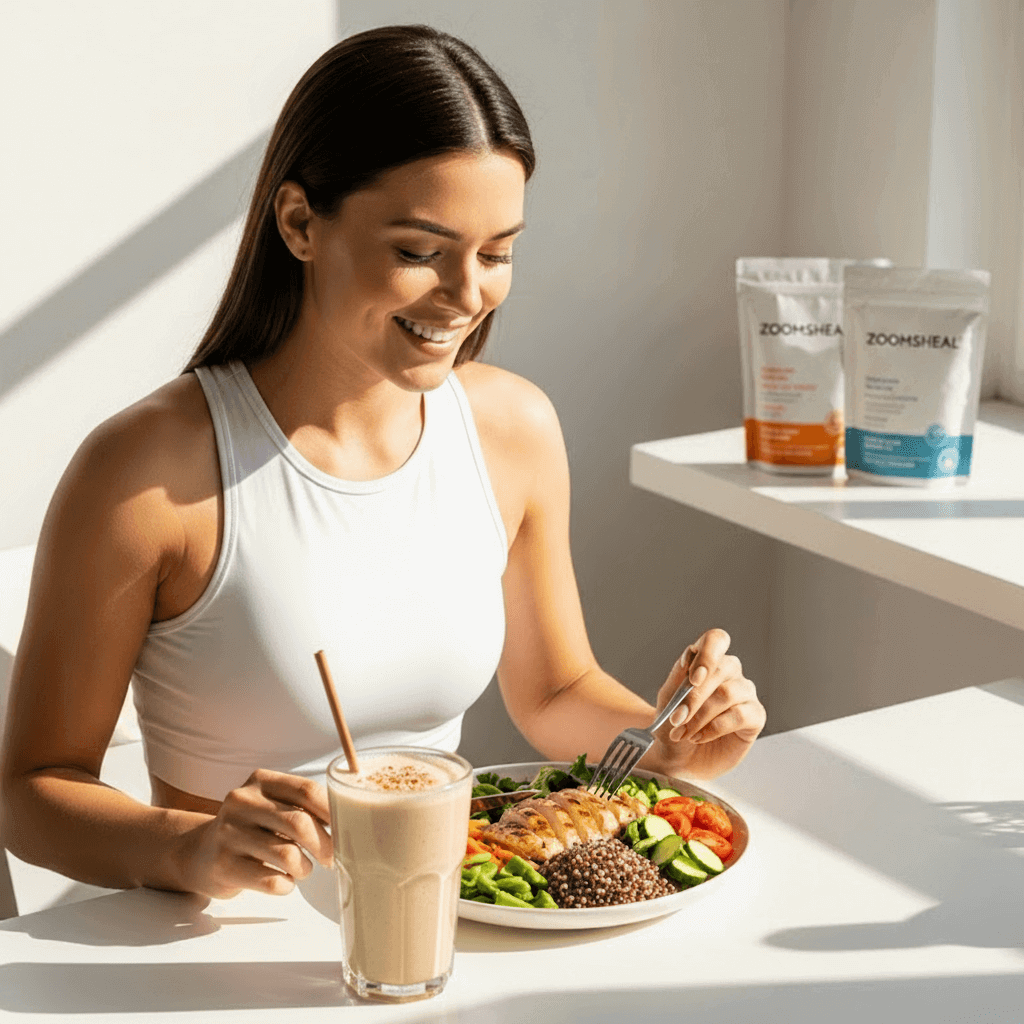For international brands looking to enter or expand in the U.S. market, choosing the right dietary supplement manufacturer is often the defining factor between success and costly mistakes. It’s not just about who can make capsules, powders, or gummies at scale—it’s about navigating strict U.S. regulations, ensuring product stability for long supply chains, and meeting consumer expectations shaped by one of the world’s most competitive supplement industries.
A European company, for example, might be surprised to learn that what works in its home market—a vitamin spray or collagen drink—cannot simply be repackaged for U.S. shelves. FDA labeling rules, cGMP audits, and even shipping regulations on liquid formulas can stall or derail a launch if the chosen manufacturer lacks compliance experience.
This is why overseas brands don’t just search for “top dietary supplement manufacturer USA.” They are really searching for a partner who can handle complexity—regulatory, operational, and strategic.
1. Why Overseas Brands Prioritize U.S. Manufacturers
Global brands typically look to U.S. supplement manufacturers for three reasons:
-
Regulatory credibility: “Made in USA” with GMP/FDA compliance carries weight in international markets, especially in the Middle East and Asia, where U.S.-origin products are seen as premium.
-
Access to innovation: Many of the world’s fastest-growing supplement formats—gummies, effervescent tablets, liquid shots—are pioneered or scaled in the U.S. first.
-
Market entry support: A U.S.-based manufacturer often provides turnkey services beyond production, such as Amazon FBA preparation, FDA registration, or export documentation.
📌 Example: A Dubai-based distributor choosing a U.S. liquid supplement manufacturer is not only buying production—they are buying reassurance that customs paperwork, Halal certification, and label compliance won’t delay their launch.
2. The Real Challenges Clients Face (And How the Right Manufacturer Solves Them)
-
Regulatory Complexity: Overseas clients often underestimate the FDA’s role. Labels must list exact ingredients, daily values, and disclaimers. A seasoned U.S. manufacturer typically has an in-house compliance team to review artwork and prevent rejections.
-
Formulation Stability: Shipping probiotics or liquid collagen from the U.S. to Europe or the Middle East requires advanced stabilization techniques. Manufacturers who specialize in global distribution design formulas to withstand long transport and varying climates.
-
Scaling Strategy: A common mistake is committing to large runs too early. Top manufacturers offer pilot batches or small-batch production so overseas brands can test demand before scaling.
-
Cultural Adaptation: What sells in Los Angeles may not appeal in Riyadh. Experienced manufacturers advise on flavor profiles (e.g., date or rose flavor for Middle East markets) and supplement formats suited to local consumer habits.
3. Top Dietary Supplement Manufacturers in the USA – Beyond the Names
When global brands search for the “top” U.S. dietary supplement manufacturers, what they are really asking is: “Which companies can guarantee compliance, innovation, and global scalability?” Here are some of the most recognized players and what makes them relevant for overseas clients.
3.1 NutraScience Labs (New York)
-
Strengths: Known for private-label and contract manufacturing across capsules, tablets, powders, and gummies.
-
Overseas appeal: Their strong compliance track record means products are export-ready. For Middle Eastern clients, their Halal-certified capabilities are a major advantage.
-
What to note: Higher MOQs (minimum order quantities), which may not suit small startups.
3.2 Makers Nutrition (New York)
-
Strengths: Specializes in turnkey solutions—formulation, packaging, labeling, fulfillment.
-
Overseas appeal: Their Amazon FBA preparation is highly relevant for European and Asian e-commerce brands looking to enter the U.S. first.
-
What to note: Popular among startups, but may lack the high-end innovation capacity that larger global brands need.
3.3 SMP Nutra (New York)
-
Strengths: Offers small-batch runs, ideal for testing new markets. Known for gummies and liquid formats.
-
Overseas appeal: Attractive to international brands wanting flexibility before committing to large-scale production.
-
What to note: Smaller compared to giants, meaning less negotiating power on raw material sourcing.
3.4 Vitaquest International (New Jersey)
-
Strengths: A long-established manufacturer with a reputation for complex formulations and large-scale production.
-
Overseas appeal: Their experience with multinational clients ensures smoother handling of export regulations.
-
What to note: More suited for established brands with strong volume needs.
3.5 Ion Labs (Florida)
-
Strengths: Focused on GMP and FDA-compliant facilities, with large-scale capacity.
-
Overseas appeal: Trusted for compliance-heavy categories like probiotics and sports nutrition.
-
What to note: Less emphasis on small startups; better for brands already established in their home market.
3.6 NutraPak USA (New Jersey)
-
Strengths: Specializes in softgels and liquid supplements.
-
Overseas appeal: Ideal for Middle East and Asian brands, where softgel fish oils and herbal oils are in high demand.
-
What to note: Narrower focus compared to full-service firms.
3.7 Captek Softgel International (California)
-
Strengths: One of the leaders in softgel innovation and large-scale production.
-
Overseas appeal: Perfect for brands exporting premium softgel products to high-margin markets.
-
What to note: Less flexible on low MOQs.
3.8 Bactolac Pharmaceutical (New York)
-
Strengths: Expertise in tablets, powders, and custom blends.
-
Overseas appeal: Known for high regulatory standards, suitable for export-driven businesses.
-
What to note: Focuses more on compliance and stability than flashy innovation.
3.9 NutraSolutions (Oregon)
-
Strengths: Innovation-driven, with a focus on clean-label and organic supplements.
-
Overseas appeal: Strong fit for European brands targeting eco-conscious consumers.
-
What to note: May have higher costs due to premium positioning.
3.10 Robinson Pharma (California)
-
Strengths: One of the largest supplement manufacturers in the U.S., with global distribution experience.
-
Overseas appeal: Can handle very large orders, making them attractive to established distributors in Asia and the Middle East.
-
What to note: Their scale can make smaller clients feel like a lower priority.
📌 Key takeaway for overseas clients:
Instead of just asking “Who is the top manufacturer?”, it’s better to ask:
-
Who can handle my target region’s regulatory requirements?
-
Who can scale with me from pilot batches to global demand?
-
Who understands consumer trends in my export market?
4. How Overseas Clients Can Choose the Right U.S. Supplement Manufacturer
For global brands, selecting a U.S.-based dietary supplement manufacturer is not just about capacity and cost—it’s about long-term trust, compliance, and market fit. Here’s how to make the decision strategically:
4.1 Evaluate Regulatory Expertise
-
Why it matters: Every export market has unique requirements. The U.S. FDA regulates supplements under DSHEA (Dietary Supplement Health and Education Act), but products destined for the EU, Middle East, or Asia may require additional certifications.
-
Case Example: A European sports nutrition company partnered with a U.S. manufacturer but failed to secure EFSA-compliant labeling, resulting in rejected shipments. They had to redo labels at significant cost.
-
What to do: Ask if the manufacturer provides region-specific labeling guidance (e.g., EFSA, Halal, or GCC standards for the Middle East).
4.2 Flexibility in MOQ and Batch Runs
-
Why it matters: Startups or new market entrants rarely want to risk producing 50,000 bottles upfront. Overseas distributors often prefer smaller test batches.
-
Case Example: A Dubai-based distributor tested only 5,000 bottles of liquid collagen before scaling up to 100,000 after demand was proven. This saved them from overstock risk.
-
What to do: Look for manufacturers like SMP Nutra or NutraScience Labs that allow small-batch production.
4.3 Transparency in Raw Material Sourcing
-
Why it matters: Overseas consumers, especially in Europe, are highly conscious about ingredient origin, sustainability, and certifications (organic, non-GMO, allergen-free).
-
Case Example: A UK brand grew quickly by promoting their supplements as “USA-made with traceable raw materials,” backed by certificates of analysis (COAs).
-
What to do: Ensure the manufacturer provides full supply chain traceability and COAs for export documentation.
4.4 Logistics and Export Readiness
-
Why it matters: Overseas buyers must navigate customs, shipping timelines, and import taxes. If a manufacturer lacks export experience, delays are inevitable.
-
Case Example: A Middle Eastern client chose a large U.S. manufacturer with no experience in Gulf customs requirements. Their first shipment sat at port for six weeks, costing them tens of thousands in storage fees.
-
What to do: Work with manufacturers experienced in international logistics and ask if they collaborate with freight forwarders.
4.5 Innovation vs. Standard Formulas
-
Why it matters: The U.S. market is fast-moving, with new delivery formats (gummies, effervescent tablets, ready-to-drink liquids) leading trends. Overseas buyers often need differentiation to stand out.
-
Case Example: A German brand successfully launched in Europe by using a U.S. partner that specialized in sugar-free gummies, a format not widely available locally at the time.
-
What to do: Balance cost-effective stock formulas with unique custom formulations that can differentiate your brand overseas.
4.6 Communication and Cultural Alignment
-
Why it matters: Misunderstandings in product specs, lead times, or payment terms can derail projects. Overseas clients must work with manufacturers experienced in cross-border business.
-
Case Example: A Japanese company faced repeated delays because their manufacturer was used to U.S. fast-and-flexible timelines, while the Japanese team expected stricter adherence to delivery schedules.
-
What to do: Assess the manufacturer’s international client portfolio and communication style.
📌 Key takeaway for global clients: The best manufacturer is not necessarily the biggest—it’s the one that aligns with your regulatory, logistical, and market-entry needs.
5. Common Challenges Overseas Clients Face — and How to Solve Them
Even after identifying a potential U.S. supplement manufacturer, overseas brands often face unexpected hurdles. Below are the most common pain points and how to mitigate them effectively.
5.1 Regulatory Compliance Gaps
-
Challenge: While U.S. manufacturers operate under FDA and cGMP standards, those certifications don’t always cover EU EFSA, Middle East Halal/GCC standards, or China SAMR registrations.
-
Impact: Products can get stuck in customs, rejected at retail entry, or require costly relabeling.
-
Solution:
-
Partner with manufacturers experienced in multi-market compliance.
-
Request documentation such as Certificate of Free Sale (CFS), Halal certificates, or Stability Studies in advance.
-
Hire a compliance consultant in your target market to pre-verify product specs.
-
5.2 Cost Structure and Hidden Fees
-
Challenge: Overseas clients often underestimate additional costs such as export documentation, freight forwarding, customs clearance, and localized packaging.
-
Impact: A supplement that seems affordable in the U.S. can lose competitiveness once landed overseas.
-
Solution:
-
Ask for a landed cost breakdown (production + shipping + customs + duties).
-
Negotiate with manufacturers for FOB (Free on Board) pricing, which gives you control over international logistics.
-
Explore regional fulfillment centers if the manufacturer offers them (some large U.S. firms have warehouses in Europe or Dubai).
-
5.3 Supply Chain Delays
-
Challenge: Raw material shortages (e.g., ashwagandha, collagen, probiotics) or packaging delays can disrupt production schedules.
-
Impact: Launches get delayed, leading to lost market momentum and shelf-space opportunities.
-
Solution:
-
Choose manufacturers with diverse supplier networks.
-
Request safety stock agreements for critical raw materials.
-
Stagger your launch plan with phased shipments to avoid stockouts.
-
5.4 Limited Customization Options
-
Challenge: Many manufacturers promote “stock formulas” to attract clients, but these may not fit overseas market demands.
-
Impact: Brands risk becoming indistinguishable in highly competitive markets.
-
Solution:
-
Seek manufacturers with strong R&D departments capable of novel delivery formats (gummies, RTDs, sprays).
-
Test custom flavoring and packaging that resonates with local consumer tastes (e.g., rose flavor for Middle Eastern markets, berry flavors for Europe).
-
Combine stock formulas with differentiated branding if customization budgets are limited.
-
5.5 Communication and Time Zone Barriers
-
Challenge: Misaligned time zones and different business cultures can delay responses and complicate negotiations.
-
Impact: Project timelines stretch, and trust can erode quickly.
-
Solution:
-
Partner with manufacturers that have dedicated international account managers.
-
Use clear SOPs (Standard Operating Procedures) for communication and approvals.
-
Set expectations for weekly progress updates to minimize misunderstandings.
-
📌 Key takeaway: Successful overseas brands don’t just choose manufacturers based on capacity or price—they evaluate compliance readiness, total cost of ownership, supply chain resilience, customization ability, and communication reliability.
6. Future Trends and Global Opportunities for Overseas Clients
As the dietary supplement industry evolves rapidly, global buyers are not just looking for current solutions but also future-ready partners. U.S. manufacturers, with their scale, innovation, and regulatory credibility, are positioned to lead the next wave of growth. Here’s what overseas clients should watch:
6.1 Clean Label and Transparency
-
Trend: Global consumers increasingly demand supplements free from artificial additives, fillers, and allergens.
-
Opportunity for Overseas Clients: U.S. manufacturers are leaders in non-GMO, organic, and allergen-free formulations. Partnering with them allows overseas brands to bring high-trust “Made in USA” clean-label products to their local markets.
6.2 Personalization of Supplements
-
Trend: AI-driven personalization and DNA-based supplement plans are gaining traction in the U.S.
-
Opportunity: European and Middle Eastern brands can import advanced U.S. formulations tailored to lifestyle, gender, or genetic markers, offering premium differentiation.
6.3 Functional Beverages and Liquid Formats
-
Trend: Liquids, RTDs (ready-to-drink shots), and effervescent powders are the fastest-growing delivery systems.
-
Opportunity: Overseas clients can tap into U.S. expertise in stability testing and flavor innovation, especially for collagen, energy shots, and gut-health drinks, which are in high demand in Asia and the Gulf.
6.4 Digital Commerce and Cross-Border Distribution
-
Trend: The rise of Amazon Global, Shopify, and regional e-commerce platforms has made cross-border supplement sales more accessible.
-
Opportunity: Many U.S. manufacturers now integrate fulfillment services, allowing overseas clients to test markets without heavy infrastructure investment.
6.5 Certifications as a Market Differentiator
-
Trend: Certifications (Halal, Kosher, NSF, Organic, GMP) are becoming selling points in premium markets.
-
Opportunity: Overseas brands can leverage U.S. manufacturers with multi-certification capabilities to immediately qualify for entry into diverse regions—from the GCC to the EU.
6.6 Sustainability and Eco-Packaging
-
Trend: Consumers globally want eco-conscious packaging and sustainable sourcing.
-
Opportunity: U.S. manufacturers are investing in compostable packaging and recycled plastics, offering overseas brands a green marketing advantage.
Final Takeaway
For overseas buyers, the question isn’t simply “Who are the top U.S. dietary supplement manufacturers?”—it’s:
-
Who can help me comply with international regulations?
-
Who can deliver innovation and scalability tailored to my target markets?
-
Who will be my strategic partner in the evolving supplement landscape of 2025 and beyond?
U.S. manufacturers, with their strong regulatory frameworks, innovation pipelines, and global export readiness, remain some of the most reliable partners for overseas supplement businesses.

